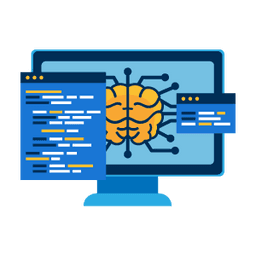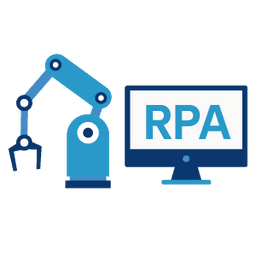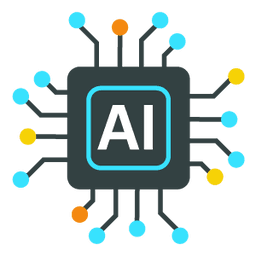- Home
- Blog
- AI and Machine Learning
- Top 10 Artificial Intelligence Technologies

- Challenges Faced While Executing Real Life Scenarios With AI
- What is ACUMOS AI
- Artificial Intelligence Interview Questions
- Artificial Intelligence In Education
- Artificial Intelligence Revolution
- What Is Artificial Neural Network And How It Works?
- Benefits of Artificial Intelligence
- Genetic Algorithm in Artificial Intelligence
- Artificial Intelligence Neural Network
- Top 5 Reasons why you should learn Artificial Intelligence
- Skill Demands in Artificial Intelligence Job Market
- Whats new in SQL Server 2016
- Why is Artificial Intelligence Important
- The Ultimate Guide to Chatbots
- AI Framework
- Artificial Intelligence Tutorial
- Machine Learning (ML) Frameworks
- What is LSTM?
- Best Software Development Courses
- What is Cognitive Computing and How Does it Work?
- What is AIOps - The Beginner's Guide
- What Is ChatGPT
- Artificial Intelligence (AI) Projects and Use Cases
- How to Install TensorFlow?
- n8n Tutorial
The term Artificial intelligence terms were first coined in 1956 at a conference. So, the term Artificial Intelligence has been around for more than 50 years. But for the last 20 years, the world has begun to understand its massive potential. Artificial intelligence technology was a stand-alone technology for thirty years, but now the applications are widespread in every sphere of life.
It has various applications like Simulation, Natural Language Processing, Speech Recognition, and Robotics. In this article, our focus is to make you aware about various ways in which AI is being. So let us start without any delay.
Table of contents
- What does Artificial Intelligence mean?
- How does AI work?
- History of AI
- Top 10 Artificial Intelligence Technologies
- Advantages of AI
- Disadvantages of AI
- Frequently Asked Questions
What does Artificial Intelligence mean?
In simple words, Artificial Intelligence is the imitation of Human Intelligence. It involves feeding the machines with a lot of data. This makes them capable of making decisions without human intervention. This means that apart from simple calculations, computers can perform operations that involve intelligence, such as recognizing patterns or identifying images.
Thus, AI mainly deals with making the machine learn from data and behave like the human mind. Moreover, Artificial Intelligence is the subset of Data Science in which we aim to embed human-like intelligence in machines using data. AI also includes Machine Learning and Deep Learning which include more advanced frameworks such as sci-kit-learn and TensorFlow to train the machine. This relation is shown below:
How does AI work?
Now, let us learn how AI works. It processes vast amounts of data using complex algorithms to recognize patterns and make decisions. Thus, AI relies on machine learning algorithms that learn from data to perform tasks without explicit programming. These algorithms use mathematical models to analyze data, extract features, and make predictions or classifications.
Let us understand this using an example. Suppose you buy 10 products on a particular day. This transaction data is fed into the machines for analysis. After understanding your interests and purchase behavior, the computer can predict what products you will likely buy most of the time. The entire AI process is based on the machines' learning and measuring their accuracy.
Now, you might be thinking that was this the start of AI or is it the current process of creating the AI-based Applications and Tools. So let us see the history of AI and how this process came into the picture.
History of AI
The historical evolution of AI is vast. It involved a lot of research worldwide to find the most appropriate way of making the machines intelligent. The timelines for the development in the field of AI are given below:
- The Year 1846: Augusta Ada Byron, Countess of Lovelace, and Cambridge University mathematician Charles Babbage gave the designs and proposed that programmable machines were possible.
- In the 1940s, Princeton mathematician John Von Neumann created the architecture of the stored program computer. Also, during this decade, McCulloch and Pitts developed the first mathematical model of a neural network.
- The Year 1956: "Artificial Intelligence" was coined at the Dartmouth Conference. This marked the official birth of AI as a field of study.
- Year 1957 to 1966: The first AI program, Logic Theorist was created by Allen Newell and Herbert A. Simon. Also, the introduction of expert systems took place, which use rules and knowledge bases to mimic human decision-making. Then, The development of ELIZA, an early natural language processing program that Joseph Weizenbaum created.
- The 1970s: AI experienced a sudden downfall. It was called the "AI Winter" as funding and interest declined due to unmet expectations.
- The 1980s: Then the resurgence of AI research with the development of expert systems and symbolic AI started.
- The Year 1997: IBM's Deep Blue defeated world chess champion, Garry Kasparov. This showed that AI can perform strong strategic decision-making.
- The years 2000 to 2010: The rise of machine learning and statistical approaches to AI took place. The speech recognition and computer vision frameworks came into the picture. Also, the emergence of deep learning and neural networks gave boost to natural language processing, image recognition, and autonomous vehicles.
- The year 2011: IBM’s Watson was developed. It defeated two former champions on the game show Jeopardy.
- The year 2020 till now: Continuous advances in AI are taking place. AI applications are being used across various sectors like healthcare, finance, and transportation to simplify complex operations.
| If you would like to become a Artificial Intelligence certified professional, then visit Mindmajix - A Global online training platform: “Artificial Intelligence Certification Course”. This course will help you to achieve excellence in this domain. |
Now let us move into these latest AI technologies which have been evolved from many decades.
Top 10 Artificial Intelligence Technologies
1. Natural language generation
 Natural language generation is a trendy technology that converts structured data into the native language. The machines are programmed with algorithms to convert the data into a desirable format for the user. Natural language is a subset of artificial intelligence that helps developers automate content and deliver it in the desired format. The content developers can use the automated content to promote on various social media platforms, and other media platforms to reach the targeted audience.
Natural language generation is a trendy technology that converts structured data into the native language. The machines are programmed with algorithms to convert the data into a desirable format for the user. Natural language is a subset of artificial intelligence that helps developers automate content and deliver it in the desired format. The content developers can use the automated content to promote on various social media platforms, and other media platforms to reach the targeted audience.Related Topic - Top 10 OSINT Tools You Should Know
2. Speech recognition
 Speech recognition is another important subset of artificial intelligence that converts human speech into a useful and understandable format by computers. Speech recognition is a bridge between human and computer interactions. The technology recognizes and converts human speech into several languages. Siri on the iPhone is a classic example of speech recognition.
Speech recognition is another important subset of artificial intelligence that converts human speech into a useful and understandable format by computers. Speech recognition is a bridge between human and computer interactions. The technology recognizes and converts human speech into several languages. Siri on the iPhone is a classic example of speech recognition.Additionally, speech recognition technology is increasingly being integrated into a wide range of applications and devices, including smartphones, smart speakers, automotive systems, and healthcare solutions
3. Virtual agents
 A virtual agent is a computer application that interacts with humans. Web and mobile applications provide chatbots as their customer service agents to interact with humans to answer their queries. Google Assistant helps to organize meetings, and Alexia from Amazon helps to make your shopping easy. A virtual assistant also acts like a language assistant, which picks cues from your choice and preference. IBM Watson understands the typical customer service queries which are asked in several ways. Virtual agents act as software-as-a-service too.
A virtual agent is a computer application that interacts with humans. Web and mobile applications provide chatbots as their customer service agents to interact with humans to answer their queries. Google Assistant helps to organize meetings, and Alexia from Amazon helps to make your shopping easy. A virtual assistant also acts like a language assistant, which picks cues from your choice and preference. IBM Watson understands the typical customer service queries which are asked in several ways. Virtual agents act as software-as-a-service too.4. Decision management
Modern organizations are implementing decision management systems for data conversion and interpretation into predictive models. Enterprise-level applications implement decision management systems to receive up-to-date information to perform business data analysis to aid in organizational decision-making.
Decision management helps in making quick decisions, avoidance of risks, and in automation the process. The decision management system is widely implemented in the financial sector, the healthcare sector, trading, the insurance sector, e-commerce, etc.
5. Biometrics
 Biometrics in AI involves the use of biological characteristics to authenticate and identify individuals. This technology relies on capturing and analyzing unique physical or behavioral traits such as fingerprints, facial features, iris patterns, voice prints, and even gait. The process typically begins with the acquisition of biometric data through specialized sensors or devices, which is then processed using AI algorithms. These algorithms extract distinctive features from the biometric data and convert them into mathematical representations known as templates or biometric signatures.
Biometrics in AI involves the use of biological characteristics to authenticate and identify individuals. This technology relies on capturing and analyzing unique physical or behavioral traits such as fingerprints, facial features, iris patterns, voice prints, and even gait. The process typically begins with the acquisition of biometric data through specialized sensors or devices, which is then processed using AI algorithms. These algorithms extract distinctive features from the biometric data and convert them into mathematical representations known as templates or biometric signatures.6. Machine learning
 Machine learning is a division of artificial intelligence that empowers machines to make sense of data sets without being actually programmed. Machine learning technique helps businesses to make informed decisions with data analytics performed using algorithms and statistical models. Enterprises are investing heavily in machine learning to reap the benefits of its application in diverse domains.
Machine learning is a division of artificial intelligence that empowers machines to make sense of data sets without being actually programmed. Machine learning technique helps businesses to make informed decisions with data analytics performed using algorithms and statistical models. Enterprises are investing heavily in machine learning to reap the benefits of its application in diverse domains. For example, the banking and financial sector needs machine learning for customer data analysis to identify and suggest investment options to customers and for risk and fraud prevention. Also, Retailers utilize machine learning to predict changing customer preferences, and consumer behavior, by analyzing customer data.
For More Info: Machine learning vs Artificial Intelligence
7. Robotic process automation
 Robotic process automation is an application of artificial intelligence that configures a robot (software application) to interpret, communicate, and analyze data. This discipline of artificial intelligence helps to automate partially or fully manual operations that are repetitive and rule-based. The process begins with identifying tasks suitable for automation, such as data entry, form filling, and routine data manipulation.
Robotic process automation is an application of artificial intelligence that configures a robot (software application) to interpret, communicate, and analyze data. This discipline of artificial intelligence helps to automate partially or fully manual operations that are repetitive and rule-based. The process begins with identifying tasks suitable for automation, such as data entry, form filling, and routine data manipulation. The RPA software then records the steps involved in completing these tasks, creating a set of instructions or a "robotic script." These scripts are typically created using drag-and-drop interfaces or scripting languages. Thus, non-technical users can automate processes without extensive programming knowledge.
8. Peer-to-peer network
 The peer-to-peer network helps to connect different systems and computers for data sharing without the data transmitting via a server. Peer-to-peer networks have the ability to solve the most complex problems. This technology is used in cryptocurrencies. The implementation is cost-effective as individual workstations are connected and servers are not installed.
The peer-to-peer network helps to connect different systems and computers for data sharing without the data transmitting via a server. Peer-to-peer networks have the ability to solve the most complex problems. This technology is used in cryptocurrencies. The implementation is cost-effective as individual workstations are connected and servers are not installed.9. Deep learning platforms
 Deep learning is another branch of artificial intelligence that functions based on artificial neural networks. This technique teaches computers and machines to learn by example just the way humans do. The term “deep” is coined because it has hidden layers in neural networks. Typically, a neural network has 2-3 hidden layers and can have a maximum of 150 hidden layers. Deep learning is effective on huge data to train a model and a graphic processing unit. The algorithms work in a hierarchy to automate predictive analytics. Deep learning has spread its wings in many domains like aerospace and military to detect objects from satellites, helps improve worker safety by identifying risk incidents when a worker gets close to a machine, help to detect cancer cells, etc.
Deep learning is another branch of artificial intelligence that functions based on artificial neural networks. This technique teaches computers and machines to learn by example just the way humans do. The term “deep” is coined because it has hidden layers in neural networks. Typically, a neural network has 2-3 hidden layers and can have a maximum of 150 hidden layers. Deep learning is effective on huge data to train a model and a graphic processing unit. The algorithms work in a hierarchy to automate predictive analytics. Deep learning has spread its wings in many domains like aerospace and military to detect objects from satellites, helps improve worker safety by identifying risk incidents when a worker gets close to a machine, help to detect cancer cells, etc.10. AL-optimized hardware
 Active Learning (AL) based hardware includes CPUs to handle scalable workloads, special purpose built-in silicon for neural networks, neuromorphic chips, etc. Organizations like Nvidia, and Qualcomm. AMD is creating chips that can perform complex AI calculations. Healthcare and automobiles may be the industries that will benefit from these chips. As the attention to the software increased, a need for the hardware that supports the software also arose. A conventional chip cannot support artificial intelligence models. A new generation of artificial intelligence chips is being developed for neural networks, deep learning, and computer vision.
Active Learning (AL) based hardware includes CPUs to handle scalable workloads, special purpose built-in silicon for neural networks, neuromorphic chips, etc. Organizations like Nvidia, and Qualcomm. AMD is creating chips that can perform complex AI calculations. Healthcare and automobiles may be the industries that will benefit from these chips. As the attention to the software increased, a need for the hardware that supports the software also arose. A conventional chip cannot support artificial intelligence models. A new generation of artificial intelligence chips is being developed for neural networks, deep learning, and computer vision. Advantages of AI
- They automate repetitive tasks: AI technologies automate repetitive tasks and free up human workers to focus on more complex and creative tasks. This leads to increased productivity and efficiency in various industries.
- They make decision-making more powerful: AI systems can analyze vast amounts of data and extract valuable insights to support decision-making processes.
- They reduce errors in operations: AI systems are less prone to errors compared to human workers, particularly in tasks that require high precision or involve monotonous activities.
- We can create solutions to overcome disabilities: AI technologies enhance accessibility by providing solutions for individuals with disabilities. For example, enable hands-free communication and navigation for people with mobility or visual impairments,
Disadvantages of AI
- It can lead to market disruption: AI automation may lead to job displacement as tasks traditionally performed by humans are automated. This can result in unemployment and economic disruption.
- It can become prone to bias: AI systems may inherit biases present in the data used to train them. This may lead to unfair or discriminatory outcomes.
- It can cause privacy issues: AI technologies often require access to large amounts of data. This may raise concerns about privacy and data security.
- There are more security concerns: AI systems are vulnerable to security threats such as adversarial attacks, data breaches, and algorithmic manipulation.
Frequently Asked Questions
1. What is Reinforcement Learning?
Reinforcement Learning is a type of machine learning where an agent learns to make decisions by interacting with an environment. It does this by receiving feedback in the form of rewards or penalties. Through trial and error, the agent learns optimal strategies to maximize cumulative rewards over time.
2. Will AI replace jobs?
You might think that AI-based Machines may replace certain jobs through automation, but they also create new opportunities and transform existing roles. The impact of AI on employment depends on factors such as technological advancement, workforce adaptation, and policy responses. Thus, AI can replace certain jobs that require normal automation and decision-making-based tasks.
3. What are the 4 types of AI technology?
The four types of AI technology encompass Reactive Machines, Limited Memory AI, Theory of Mind AI, and Self-Aware AI. Reactive Machines depend on the predefined rules and inputs. Limited Memory AI involves learning from past experiences and adjusting their behavior accordingly. Theory of Mind AI can understand and interpret human emotions and Self-Aware AI makes machines understand their own existence, reason about complex concepts, and exhibit self-awareness.
4. What are the most commonly used machine learning algorithms?
You can use various machine learning algorithms including linear regression, decision trees, neural networks, and support vector machines. Each algorithm has its strengths and weaknesses, making them suitable for different types of tasks and datasets.
5. How do neural networks work?
Neural networks consist of interconnected nodes organized into layers that receive input signals, perform computations, and generate output signals. Through the process of training, neural networks adjust connection weights to learn from data. This enables them to recognize patterns and make predictions.
Conclusion
To conclude, Artificial Intelligence represents computational models of intelligence. This Intelligence can be described as structures, models, and operational functions that can be programmed for problem-solving, inferences, language processing, etc. AI Technologies include the continuous cycle of training and evaluating the machines to improve decision-making. We have learned about AI, how it works, its history, and various technologies. Now, you can easily dive deep into the advanced concepts of AI-based Tools and frameworks that have been used to improve the business processes in organizations.
 On-Job Support Service
On-Job Support Service
Online Work Support for your on-job roles.

Our work-support plans provide precise options as per your project tasks. Whether you are a newbie or an experienced professional seeking assistance in completing project tasks, we are here with the following plans to meet your custom needs:
- Pay Per Hour
- Pay Per Week
- Monthly
| Name | Dates | |
|---|---|---|
| Artificial Intelligence Course | Feb 21 to Mar 08 | View Details |
| Artificial Intelligence Course | Feb 24 to Mar 11 | View Details |
| Artificial Intelligence Course | Feb 28 to Mar 15 | View Details |
| Artificial Intelligence Course | Mar 03 to Mar 18 | View Details |

Madhavi Gundavajyala is a Content contributor at Mindmajix.com. She is passionate about writing articles and blogs on trending technologies, project management topics. She is well-versed on AI & Machine Learning, Big data, IoT, Blockchain, STLC, Java, Python, Apache technologies, Databases.




